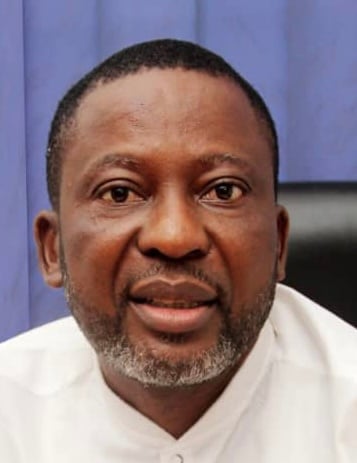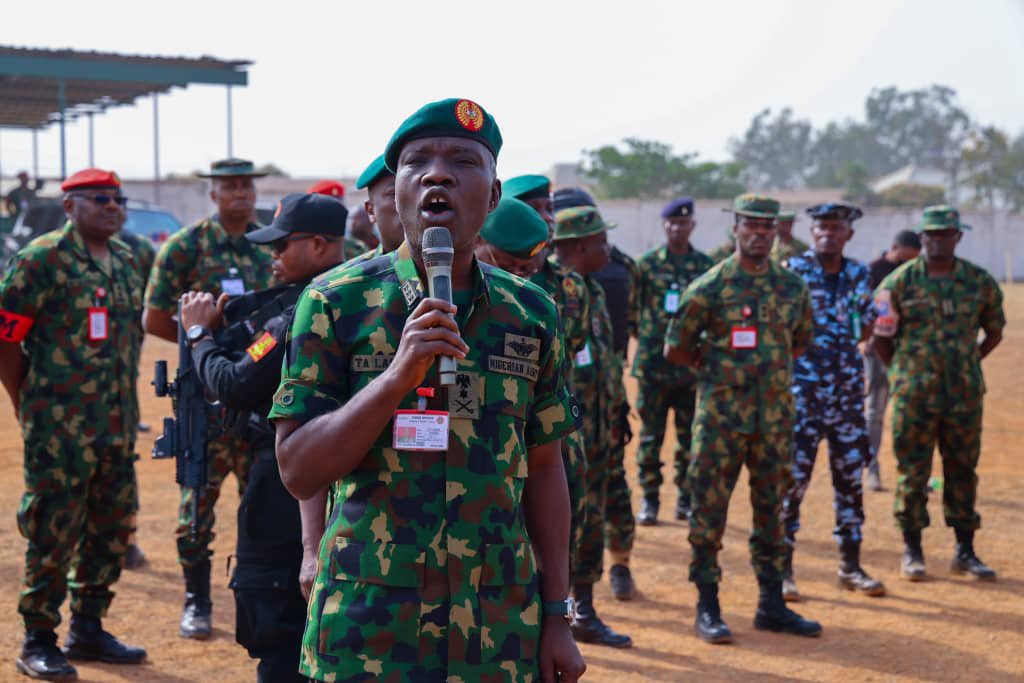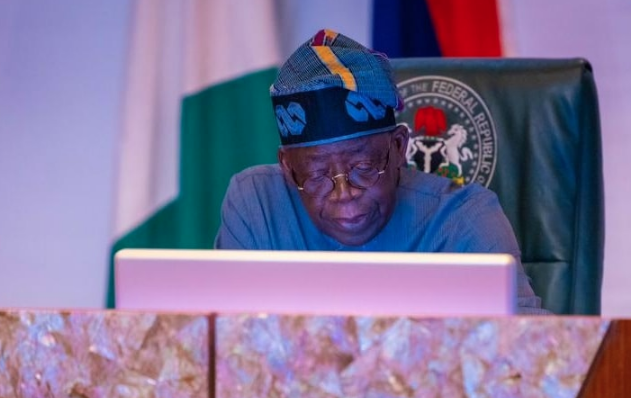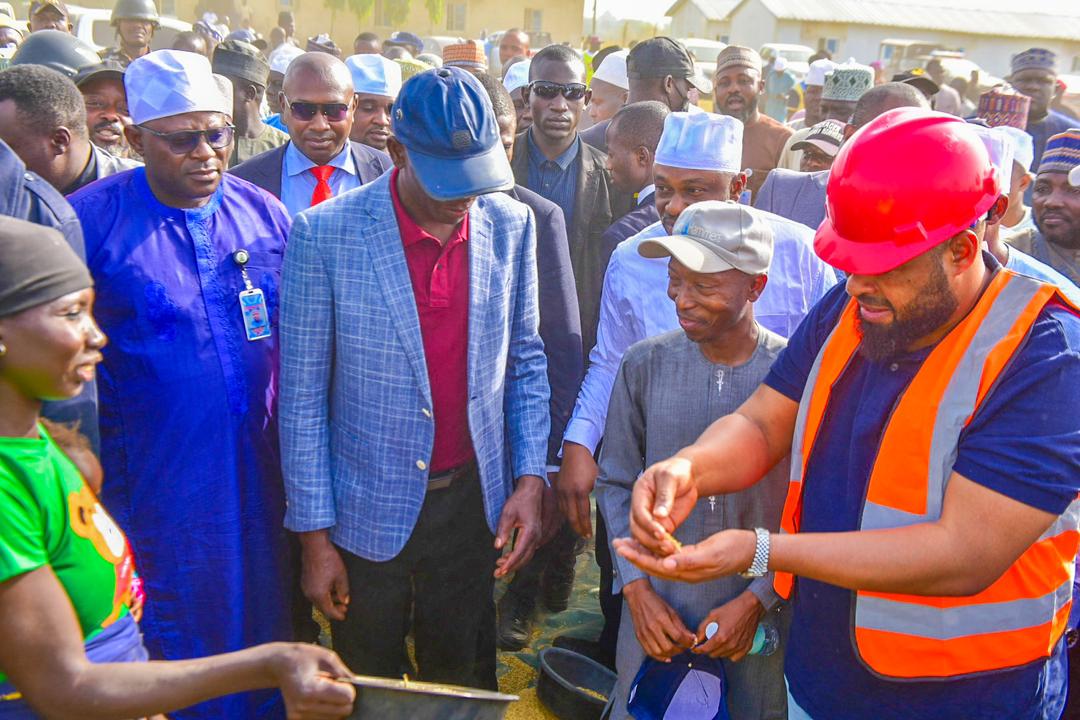There is hope on the horizon that the insecurity in the country which has brought Nigeria to her knees will soon be history following the very robust strategy and clear and resolute vision from the current Chief of Army Staff (COAS), Lieutenant General Taoreed Lagbaja.
Nigeria has been grappling with persistent insecurity, with headlines often dominated by stories of violence, kidnappings, deaths and general uncertainty. Communal conflicts, herders and farmers conflicts, crude oil theft illegal mining have also been on the front burner for years now.
The pervasive nature of insecurity has cast a shadow over the country’s prospects for peace, prosperity, and social cohesion.
However, the appointment of General Taoreed Lagbaja, as the 23rd Chief of Army Staff (COAS), has given a new shot in the arm to the war against insecurity in the country.
Advertisement
Before the visionary leadership of Lt. Gen. Lagbaja over the Nigerian Army, threats of insecurity in Nigeria have not only claimed countless lives but have also undermined the country’s stability, hindered its economic growth and eroded public trust in its institutions. As hope rises under the leadership of the Chief of Army Staff, a new chapter is being written in Nigeria’s security landscape.
No part of Nigeria was left out during the surge of insecurity making it difficult for citizens to sleep peacefully with their eyes closed. While Boko Haram insurgency and banditry reigned supreme in the North with the kidnapping of innocent citizens, especially hapless pupils among secondary school students in their numbers with attendant agony for parents and loved ones, the southeastern part of the country also became the worst hit with several versions of terrorism such as kidnapping, unknown gunmen, ESN, and recently Ebube Agu.
In the South West, the herdsmen attack was the order of the day as many churches were attacked, and thousands of worshippers were either burnt to death or killed. Key personalities were also targeted, kidnapped and killed. Fear was heightened to the extent that road transport to several locations in the country was curtailed by many who were no longer sure of getting to their destination owing to the menace of insecurity.
Advertisement
Like wildfire, insurgency reigned supreme across the country as several cases of deaths were reported daily without obvious solutions despite combined efforts by the country’s security architecture.
Many security personnel across the Armed Forces were also killed in their numbers as they became major targets of bandits and insurgents.
Reports had it that between 2011 and 2023, Boko Haram was responsible for thousands of deaths in Nigeria, Cameroon, Chad, and Niger and over 38,000 deaths in Nigeria alone and still counting.
As a result of the activities of terrorists and insurgents Nigeria was ranked 3rd among the five countries with the highest number of internally displaced persons (IDPs) in 2022 with an estimated 3.6 million IDPs resulting from violence and restiveness, 1.9 million of which are from Borno state.
Advertisement
The activities of non-state actors revealed Nigeria as a failing state that and was ranked the world’s 15th most fragile in the 2023 Fragile States Index.
However, the role of Nigerian armed forces, particularly the Nigerian Army, has never been more crucial than now. Amidst these challenges, the leadership of the Nigerian Army under Lt.General Lagbaja has been pivotal in formulating and executing strategies aimed at decimating insurgency and restoring hope to all.
Lt. General Lagbaja the Chief of Army Staff, assumed office at a critical juncture in Nigeria’s history. Tasked with the herculean responsibility of leading the Nigerian Army in its fight against insurgency, his tenure has been marked by a series of proactive strategies and operational engagements aimed at confronting the myriad security threats facing the nation.
Central to the Chief of Army Staff’s vision is a comprehensive approach that addresses the root causes of insecurity while simultaneously bolstering the capacity of the Nigerian Army to respond effectively to emerging threats.
Advertisement
One of the key pillars of Lagbaja’s approach has been prioritising personnel welfare. Recognising the importance of personnel welfare in mobilising competent committed and loyal officers at all levels, the COAS has recently implemented a series of policies to enhance the work ethic and effectiveness of officers. The results of this visionary leadership have been overwhelming as terrorists and insurgents in their numbers are being decimated daily and across regions.
A recent audio-visual showcasing the heartwarming welcome accorded to Nigerian Army heroic troops after a successful operation at Sambisa and Timbuktu Triangle during Operation Desert Sanity 111 tells it all about the impact of the visionary leadership of the present COAS.
Advertisement
The video captured the genuine and heartfelt welcome extended by the local communities to the valiant troops in appreciation of their successful operation.
Some of the measures being implemented by COAS include the Affordable Home Ownership Option for All Soldiers ( AHOOAS). The initiative, according to Lt. Gen Lagbaja, is a reinvigorating welfare scheme aimed at alleviating the hardship soldiers face in securing personal accommodation post-service life. The COAS also noted that the initiative will, in the long run, necessitate good governance and economic prosperity for the nation as effective personnel will help achieve the military’s objective of securing the nation and its citizens.
Advertisement
Having made personnel welfare a priority, other sundry welfare schemes have been put in place to boost the morale of the Nigerian Army personnel and spur troops’ fighting spirit and increased productivity as enshrined in the Command Philosophy of the COAS.
For instance, the Nigerian Army Welfare Loan was introduced to improve the welfare of the Nigerian soldier. One of such welfare scheme is the COAS Cash Loan Scheme which is already operational.
Advertisement
The COAS Personnel Empowerment Loan Scheme (CPELS) with implementation effective April 30, 2024, aims at empowering army personnel and families through investment in agriculture, blue chip stocks, skill acquisition training, SME businesses, asset acquisition, medical bills and other family-friendly endeavours. It also seeks to alleviate cash shortage concerns and safeguard personnel from high-interest rates charged by banks and other financial institutions. The implementation of the CPELS comes with enormous benefits for the Nigerian Army Personnel and their families which include; poverty alleviation as access to loans will help improve the standard of living and wellbeing of personnel and provide a shorter loan bureaucratic process as it requires only application form and military ID card.
It is also non-exploitative as it offers lower rates as against 35-40% annual lending rates in banks, a smooth recovery process as borrowed funds will be recovered at source, thus eliminating loan defaults and preventing bad debts. The loan scheme is a suitable and revolving scheme with a monthly recovery projected to ensure sustainability in the first three years before additional capital injection is needed. The loan offers a fixed monthly reduction over a longer period, making it flexible to collect and easy to refund.
The scheme does not encourage any form of preferential treatment as loans will be granted to military personnel on a first-come, first-serve basis.
To make the loan scheme effective and accessible to all personnel as at when needed, there exists some terms and conditions personnel are required to fulfil before loans are granted. This includes
- Intended officers must be ranked from captains to major generals and corporal to army warrant officers to be eligible for the loan scheme.
- Also, soldiers must have at least five years left in service to be eligible and the standard practice is for loan ceilings not to exceed 33% of disposable income.
When these conditions are fulfilled, officers ranked Corporal can access up to a maximum of N750,000.00 while sergeants to staff sergeants are eligible for a maximum loan of N900,000.00. Also, warrant officers to army warrant officers are eligible to access a maximum of N1.2 million, while captains could get up to N2 million and majors up to N2.5 million. Lt. Colonels are eligible for N3 million, colonels N5 million while brigadier generals can access up to N10 million and major generals can get N20 million.
Under the CPELS Army personnel with disciplinary cases are to be excluded and not recommended by their commanders as well as those with government and other lenders’ loans.
Also, the CPELS will be interest-free, however an annual administrative fee of 7% will be charged. There is also a 12-month gap between loan applications and other flexible terms and conditions.
The Army Nigerian under the leadership of Lt. General Lagbaja, has also intensified efforts to enhance its intelligence capabilities. This includes leveraging technological advancements, strengthening collaboration with intelligence agencies, and engaging local communities to gather actionable intelligence on insurgent activities.
It is therefore no wonder that the Global Terrorism Index report has recently revealed a decline in the prevalence of terrorism in Nigeria, an indication of the military effort since the advent of Boko Haram to assiduously stem insecurity in the country.
Lieutenant General Taoreed Lagbaja, Nigeria’s Chief of Army Staff, has demonstrated exemplary leadership in confronting insurgency and restoring hope to citizens. Through strategic measures focused on intelligence gathering, inter-agency collaboration, troop welfare, and community engagement, he has steered the Nigerian Army towards significant achievements in its fight against insurgency. As Nigeria continues its quest for lasting peace and security, Lieutenant General Taoreed Lagbaja’s leadership serves as an inspiration and hope, guiding the nation towards a brighter and more prosperous future.
His clear vision, characterised by strategic foresight, operational excellence, and a commitment to the rule of law, is yielding positive results in the fight against insecurity. By pursuing a comprehensive approach that addresses the root causes of insecurity and strengthening the capacity of the Nigerian Army, progress is being made towards achieving lasting peace and security across the nation.
Okoronkwo is a leadership and good governance advocate and writes from Lagos. He can be reached via [email protected].
Views expressed by contributors are strictly personal and not of TheCable.







